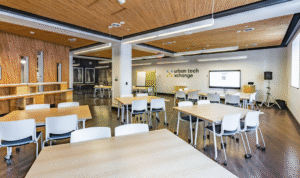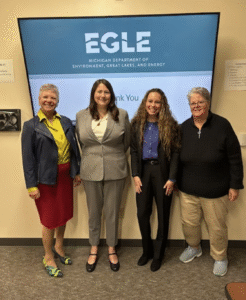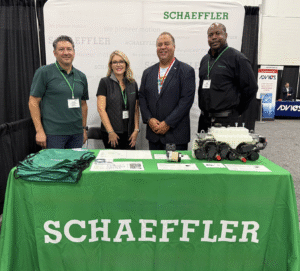
- Kim Kisner
- Business
- 07/27/2022
The President of Solutions for Energy Efficient Logistics Serves Major Utilities Throughout the Midwest
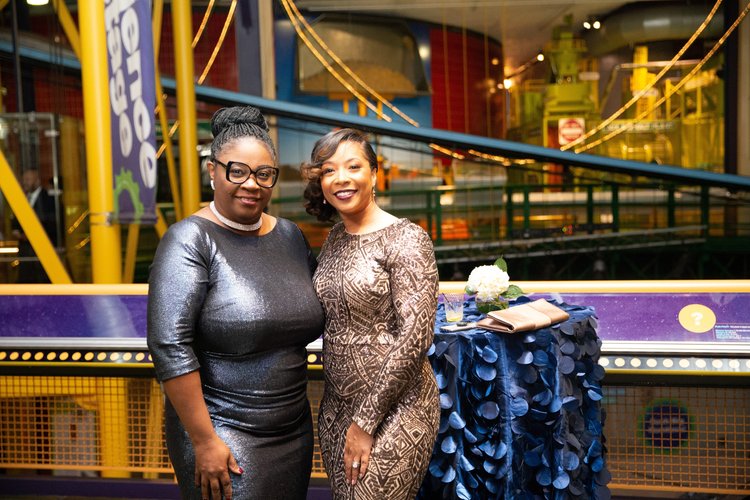
SBN Detroit interviews Dr. E’Lois Thomas, President of SEEL LLC (Solutions for Energy Efficient Logistics), a nationally certified MBE energy program implementation company that serves major utilities throughout the Midwest, South, and Northeast with expansion plans. Here, Thomas shares her thoughts on the correlation between energy resource development and expanding opportunities for disadvantaged minorities.
Her leadership has helped SEEL to become one of the largest African American-owned implementation contractors working toward growth in sustainability, energy justice, and equality for all.
Thomas is vice chair of the Midwest Energy Efficiency Alliance board, treasurer with Advancing Women in Energy, a member of the American Association of Blacks in Energy board, and a mentor for the Council of Women in Energy and Environmental Leadership. She is a big advocate of youth advancement and volunteers as a board member for RESULTS Mentoring, Detroit Police Athletic League (PAL), and Franklin Wright Settlements.
Q: Can you tell me briefly about what work you are doing exactly with SEEL?
A: I’ve been with SEEL for 11 years now and with the parent company for more than 20 years, and as president, I guide and oversee all aspects of the company’s operations and growth.
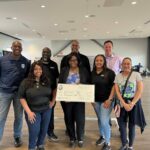
Since joining the company, I have worked toward the company’s growth in an industry that is committed to combat the climate crisis. We’ve had to navigate an industry that is rapidly changing from gas and fossil fuels to electrification, renewable, and clean energy.
Also, as a leading minority-owned disabled-veteran-owned company, energy access and equity are important to us. We’re intentional about including minorities and underrepresented groups in the conversation.
Q: You are involved with the growth trajectory of SEEL – as such what is your vision for the future?
A: We’ve been involved in the energy industry since the beginning of broad energy efficiency programs being implemented in communities.
The goal then was to reduce the carbon footprint by educating utility customers about energy efficiency and retrofit their homes with energy efficiency products and services.
Fast forward to today, the industry is rapidly adopting renewable and clean energy intending to become carbon neutral in the next 25 – 30 years.
This provides a great opportunity to grow the company in diverse ways.
In addition to offering services related to renewable and clean energy, services like weatherization, building performance, and workforce development all provide rewarding opportunities right now.
Q: How will you reach these goals/this vision?
A: By continuing to train the workforce of tomorrow, while making an impact on the quality of life of our current employees and the communities we serve.
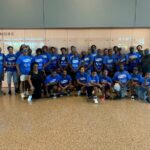
Training is critical, whether it’s training for skilled trades, continuous improvement, building science, energy justice, HVAC, solar, or the training of being an energy-efficiency professional with key attributes like customer service, etc. SEEL is committed to this education.
Q: What are some examples of what some local programs SEEL has implemented?
A: We are training up our team in renewable energy options like solar and completing pilot projects for community-based organizations and local churches. We are speaking in the community to ensure that electric vehicles include diverse communities by petitioning for inclusion and more charging stations in urban areas. We are collaborating with Detroit 2030 District which continues great work to reduce the environmental impact of buildings and operating costs for building owners/managers in Detroit.
In Detroit, we were the first minority-owned corporation to join DTE’s MIGreenPower 100% clean energy at its headquarters. DTE Energy’s MIGreenPower program is among the top three voluntary renewable energy programs in the United States. Notably, MIGreenPower offers simple and affordable renewable energy programs to eligible electric customers, thereby supporting the company’s wind and solar projects.
In addition, we are currently reviewing our fleet for fleet emissions reductions with a plan in place to transfer all assets by the end of 2023 to efficiency grade to reduce our carbon footprint.
In the state, we also collaborate with Consumers Energy toward their clean energy goals by managing programs with their Clean Energy Plan poised to meet Michigan’s energy needs and to continue the journey to net-zero carbon emissions by 2040, and we implement the entire energy efficiency portfolio for the Upper Peninsula Power Co. (UPPCO), powering through together in one of the most rural, weather-challenged areas in America, and for Indiana Michigan Power as well.
Q: What drives your passion?
A: I know first-hand the disparities that exist in energy burden. I grew up on the east side of Detroit and graduated from Pershing High School in the Detroit Public Schools Community District.
As a young African American student, I always aspired to help others, so what fuels me today is that every customer deserves a path to energy justice, and I have a quest to ensure that this path occurs for everyone, independent of their financial, social or economic status.
Not only is energy equity a passion of mine personally and professionally with SEEL, but there is such an opportunity for our industry to impact lives and communities while reaching those that have been underserved for too long.
Simply put, access to clean air is a human right, yet so many of us don’t have it. Change is overdue, so the priority is critical now.
Q: Outside of SEEL you are involved in many organizations. One is the American Association of Blacks in Energy board. From your perspective, what is the correlation between energy resource development, economic growth, and minorities?
A: The correlation between energy resource development, economic growth, and minorities has clearly shown a gap in the representation of minorities that organizations like AABE work to resolve. AABE is a resource for providing information and educating energy consumers from all sectors of society, with emphasis on marginalized communities ensuring that the public and private sectors are responsive to the problems, goals, and aspirations of African Americans.
AABE recognizes that access to reliable and affordable energy is essential to everyone so from an inclusion standpoint, we make sure that African Americans are represented in the conversations politically, socially, and in the community.
Q: What work is being done here specifically?
A: Young people are the key to our future and the most sustainable way that organizations like AABE can make a difference. Whether it is our focus in October on Black Energy Awareness Month, our annual scholarships where we source thousands of dollars to students in our region or our savvy team of economic and political members who petition and lobby for inclusion. Specifically, the scholarships help to support educational aspirations for students by introducing them to careers in energy, and our representation with legislation helps to keep our voices relevant and included in the conversations.
Other specific examples include access to executive coaching and engaging leadership sessions at our conferences, professional development opportunities, and – what I enjoy most are the webinars that help expand, engage, and guide the conversations on an assessable platform.
Q: What do you see as the biggest challenges for businesses and organizations that you work with when it comes to sustainability?
A: Right now, the biggest challenge is really putting your profits toward your passion.
The impact of COVID-19 has been really painful to small businesses. While they may have a passion to be sustainable, the profits are not there to support many of their goals and desires. This is a huge challenge because we know that clean energy is critical but requires funding for upgrades. This is where utility programs can help businesses meet their goals and also help them save money. In addition, these efficiency programs that SEEL implements also support single-family and multifamily energy upgrades.
Kim Kisner
- All
- Business
- Community
- Education
- Events
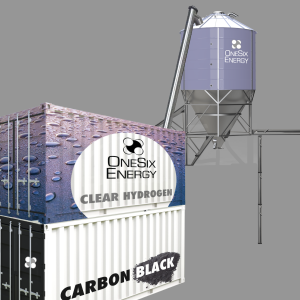
Detroit-based OneSix Energy is a clean-energy technology company focused on advancing a lower-carbon approach to hydrogen production. Headquartered at Newlab in Detroit, the startup is developing a proprietary methane pyrolysis system designed to produce hydrogen without carbon dioxide emissions, while also generating solid carbon as a co-product. SBN Detroit interviewed with cofounder Stefan Sysko about the company’s origins, its approach to hydrogen production, and why Detroit is positioned...
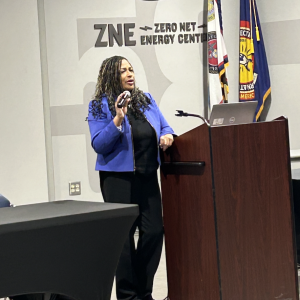
Regina Strong serves as Michigan’s first Environmental Justice Public Advocate, leading the state’s Office of the Environmental Justice Public Advocate. Her role focuses on addressing environmental justice concerns raised by communities, helping residents navigate environmental systems, and working across state agencies to improve equity in environmental decision-making. SBN Detroit interviewed Strong about the challenges communities are facing across Michigan and what environmental justice work looks like in practice....

Founded in 1965, Gensler is a global architecture and design firm working across sectors including urban development, commercial real estate, and civic infrastructure. SBN Detroit sat down with Najahyia Chinchilla, senior associate and sustainability consultant, to discuss mass timber, embodied carbon, and what sustainable construction means for Southeast Michigan. Q: Why is wood re-emerging right now as a serious option for large-scale, urban construction? A: Mass timber blends strength, sustainability, and design quality in ways few materials can. Wood has...




